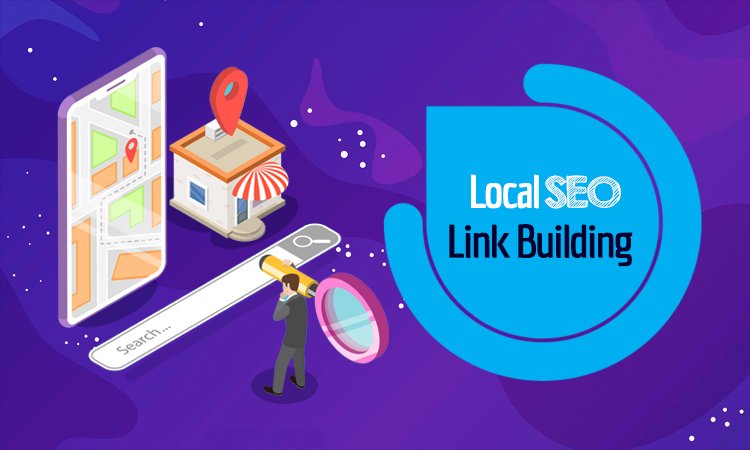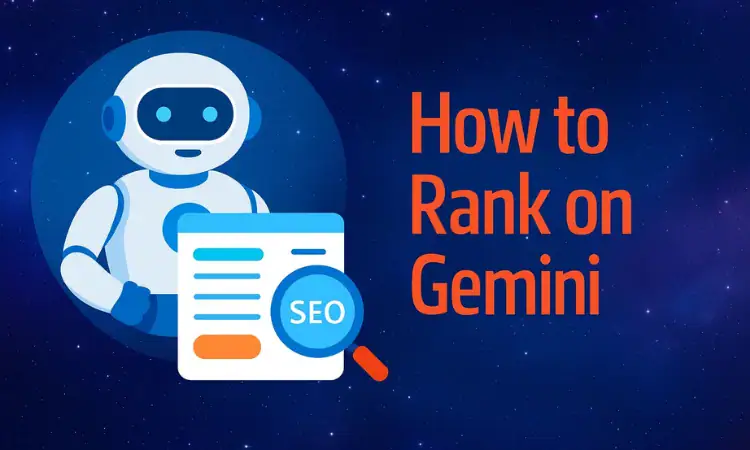Local SEO Link-building
Are you ready to unlock the secret to ruling the local search landscape in 2025?
Imagine the impact of having your business pop up first when locals search for services you offer. This isn’t just a dream; it’s achievable with the right local SEO link-building strategies.
This guide will explore nine battle-tested tactics that promise to elevate your business’s online visibility.
You’ll discover not just any advice but actionable strategies designed to cement your place on Google’s coveted first page of local listings—no overwhelming jargon, no sales fluff, just straightforward, practical steps.
In fact, before we dive into the finer points of local SEO link building, here are two simple methods that you can start with today:
A Quick Overview of What We’ll Cover
Local SEO link building isn’t just beneficial; it’s critical for businesses determined to stand out in local search results and connect with their community. Our focus? Securing backlinks from trustworthy local sources to ensure your success isn’t just temporary but built to last.
We’ll explore everything from analyzing competitor backlinks and leveraging local directories to engaging with your community meaningfully. Whether through local forums, social media, or sponsoring events, you’ll learn how to attract quality backlinks and maintain local relevance.
Prepare to transform your local SEO approach and make your business seen and sought after in your local area.
The Importance of Local SEO Link Building
Why is local SEO link-building vital?
Acquiring backlinks from trusted local sources significantly boosts your prominence in Google’s local rankings. It enhances online visibility for over 90% of searchers who pick businesses from the first page of local search results.
Think about it. Wouldn’t you want your business to be in the top picks?
Local SEO link building not only boosts your site’s authority within its niche, it also fosters connections with your community and enhances relevance for local search queries.
Local SEO link building is not a quick win but a strategic, long-term effort leading to higher site rankings and sustained search engine visibility.
Is Link Building Getting Less Important for Local Businesses?
While local SEO continues to become more complex, link building retains its central role for local businesses. You might have heard otherwise, but Google’s search results for local queries are based on distance, relevance, and prominence, with prominence being influenced by information from across the web, such as directories, articles, and links.
Small businesses can benefit from local link building, leading to higher search result rankings, increased brand visibility, and improved revenue through solid lead generation.
The Local Pack on Google, which shows the top three results for local businesses, considers backlinks when deciding which companies to feature. Given that more than 90% of searchers choose businesses listed on the first page of local search results, the importance of local link-building for small business competitiveness cannot be overstated.
The Growing Complexity of Local SEO
While link building remains crucial, local SEO has indeed become more complex due to numerous updates and the increasing importance of elements like local landing pages, Google Business Profile optimization, and reviews. With nearly 46% of searches being location-based, the impact on local SEO is significant.
By focusing on local links, you can strengthen your link-building efforts and improve your online presence.
However, not all links are created equal.
No Follow Vs. Do Follow Links for Local SEO
Do-follow and no-follow links both hold significance.
While do-follow links pass on SEO equity and help improve search engine ranking, no-follow links tell search engines not to follow the link and do not pass on SEO equity.
However, no-follow links can still be helpful in your overall local SEO link-building strategy, as they have positively impacted map pack rankings.
Local citations are one example of no-follow links that can help improve your map pack rankings.
The Role of Citations in Local SEO
Citations play a significant role in the increasingly complex landscape of local SEO. They essentially mention your business on other websites, usually featuring your name, address, and phone number.
Citations from authoritative local sources can contribute to a business’s prominence and influence its rankings in Google’s Local Pack.
With links and citations alike, knowing what to look for and where will help you uncover a clear path to better visibility in your local market.
How To Find Local Link-Building Opportunities?
With the significance of local SEO link building established, we can investigate strategies to unearth these valuable opportunities.
The key lies in analyzing top-ranking competitors, local directories, and niche-specific sites.
It’s like looking for buried treasure; you must know where to dig.
Investigating competitors with high local search result rankings can expose their backlink sources and reveal potential local link building opportunities.
How To Find The Best Competitors to Analyze?
Identifying the best competitors to analyze is like choosing the right sparring partner.
You should examine top-ranking sites for your keywords in the map pack and localized organic results.
These competitors have already mastered the art of local SEO link building, and studying their methods will provide you with valuable insights and tactics.
Once you uncover good link opportunities, you will need a diverse set of link-building tactics to help you replicate them and earn your spot on reputable websites.
How To Secure Local Backlinks?
Let’s dive into the nine innovative methods that will help you harness the power of local SEO and secure those coveted local backlinks.
These techniques amplify your online presence, foster community engagement, and position your business as a local authority.
From leveraging the clout of local citations to tapping into the influence of social media, each approach is a key piece of the local SEO puzzle.
To kick things off, let’s start with two easy yet effective methods: citations and niche directories.
#1 Local Citation Building
Local citations are crucial for local SEO link building, serving as a foundational element for enhancing your digital presence in the community.
By ensuring your business is accurately listed in various online directories, you’re effectively planting your flag on the digital map, signaling to potential customers and search engines that you’re a key player.
Here’s how to optimize your local citations:
- Ensure consistency of your business name, address, and phone number across all listings.
- Regularly update your information to reflect any changes in your business.
- Seek out high-authority directories to list your business for a more substantial SEO boost.
Local citations enhance visibility and reinforce your business’s legitimacy, making it a trustworthy choice for customers searching for your services.
#2 Niche-Specific Directory Listings
Niche-specific directories offer a targeted approach to local SEO link building by connecting your business with industry-specific audiences.
These directories act as specialized marketplaces, with potential customers actively seeking services in your domain.
To capitalize on niche directories:
- Identify directories that are highly relevant to your industry.
- Choose directories with a strong presence in your local area for maximum impact.
- Prioritize your listing details to ensure that your business stands out.
By securing a spot in these niche marketplaces, you’re not just gaining a backlink but also placing your business directly in front of an interested audience, ready to engage with your services.
#3 Engaging with Local Press, Media, and Press Releases
Local press and media exposure and strategic press releases are invaluable for securing authoritative backlinks with a local focus.
Here’s how to harness these resources effectively:
- Forge Relationships with Local Journalists and Outlets: Introduce your business and provide compelling story angles to local journalists. This can lead to coverage that gives you valuable backlinks and boosts your community profile.
- Contribute to Local Publications: Write guest articles for local blogs or newspapers. This establishes you as a thought leader in your community and secures backlinks.
- Promote Events through Local Calendars: If you’re organizing an event, list it on local event calendars with a link to your site. This can drive traffic and increase backlinks.
- Pitch Feature Stories: Offer unique, engaging stories about your business to local media. A feature can lead to high-quality backlinks and enhance your brand’s local recognition.
- Utilize Press Releases Wisely: Craft newsworthy press releases for significant business events or announcements. Distribute them to a curated list of media contacts. Ensure they’re optimized with location-based keywords to improve local search visibility and potentially earn backlinks.
- Monitor Press Release Impact: Track the performance of your press releases and media coverage. Use this data to refine your approach and maximize the local SEO benefits.
By combining these tactics, you can create a powerful synergy that increases your online presence and cements your status as a pillar of the local business community.
#4 Creating and Contributing Engaging Local Content
Developing distinctive, engaging local content is one of the most effective ways to earn links and establish your business as a local authority. Here’s a step-by-step approach to make your content efforts more practical and actionable:
- Research Local Interests: Start by understanding what your local audience cares about. Use social listening tools, attend community events, or conduct surveys to gather insights into the topics that resonate with locals.
- Collaborate with Local Websites: Identify local websites, blogs, and forums that align with your business niche. Reach out to them with a proposal to create content that would add value to their audience.
- Create a Content Plan: Based on your research, develop a content plan that includes educational articles, local news, event summaries, and how-to guides relevant to your community.
- Contribute Regularly: Establish a regular posting schedule to contribute content. Consistency helps build your reputation as a reliable source of local information.
- Leverage Local Events and News: Write about recent or upcoming local events, providing unique perspectives or valuable information not readily available elsewhere.
- Showcase Local Success Stories: Feature interviews with local leaders, customer success stories, or case studies highlighting your business’s positive impact on the community.
- Encourage Community Participation: Invite local experts or community members to contribute guest posts. This not only diversifies your content but also encourages contributors to share the content with their networks.
- Optimize for Local SEO: Ensure your content is optimized with local keywords, meta descriptions, and tags to improve its visibility in local search results.
- Promote Your Content: Share your content on social media, local online groups, and through email newsletters. Engage with comments and feedback to foster a community around your content.
This will attract interest in your company and create opportunities for referral traffic and leads through compelling local content that genuinely engages your audience.
#5 Blogging for Local SEO
By consistently blogging about locally relevant topics such as common problems faced in the community, you can enhance your business’s visibility in local search results.
To effectively utilize blogging for local SEO, consider the following actionable steps:
- Identify Local Issues and Topics: Research and list local issues, events, or topics that resonate with your community. Use local news, forums, and social media to determine what matters to your audience.
- Create a Content Calendar: Plan your blogging schedule by creating a content calendar. Decide on the frequency of your blog posts—weekly, bi-weekly, or monthly—and stick to it to maintain consistency.
- Incorporate Local Keywords: Use tools like Google Keyword Planner to find local search terms related to your business. Include these keywords naturally in your blog posts to improve local search visibility.
- Showcase Community Involvement: Write about your participation in local events or initiatives. Share stories of how your business is contributing to the community’s well-being.
- Feature Local Guest Bloggers: Invite local figures, customers, or business partners to contribute to your blog. This provides fresh perspectives and encourages them to share the content with their networks.
- Promote Your Blog Posts: After publishing, share your blog posts on social media, local online groups, and email newsletters. Encourage local readers to comment, share, and engage with your content.
- Monitor Your Impact: Use analytics tools to track the performance of your local content. Look for increases in local traffic and engagement as indicators of your blog’s impact on your local SEO efforts.
- Iterate and Improve: Use feedback and performance data to refine your blog strategy. Continue to adapt your content to better meet the interests and needs of your local audience.
By following these detailed steps, you can maximize your blog’s impact on your local SEO efforts, helping to establish your business as a local authority and a go-to resource for community-related topics.
#6 Collaborating with Local Influencers
Engaging with local influencers on social media can build relationships that lead to collaboration opportunities and link-building efforts. Some benefits of collaborating with local influencers include:
- Building brand awareness and credibility
- Attracting backlinks to your website
- Reaching a wider audience
- Boosting your brand’s reputation
Imagine collaborating with a top local influencer on a blog post or a social media campaign. Their endorsement can help attract backlinks and boost your brand’s reputation.
Guest blogging also allows businesses to write posts for other local blogs or publications in exchange for backlinks, showcasing their expertise and reaching new audiences.
#7 Participating in Local Events and Sponsorships
Engaging in local events can establish your business as a community linchpin, significantly boosting visibility and reputation.
Whether hosting a local event or sponsoring one, these activities can lead to backlinks from local news sites, community calendars, and other geo-specific sources.
Securing a backlink can also be a part of a sponsorship deal when a business supports a local event or charity, contributing to your local SEO efforts.
Hosting Events
Hosting special events and promotions can help to build a local presence, increase brand awareness, and create local link-building opportunities.
By collaborating with local businesses and organizations on joint events or content, you can create opportunities for backlinks, as partners may reference the collaboration on their blogs or websites.
Hosting local charity events can demonstrate your company’s philanthropic values and increase community engagement.
Sponsoring Local Organizations
Sponsoring local organizations is another effective strategy for local link-building.
You can create mutual benefits by partnering with local charities, NGOs, and sports teams—diverse local event sponsorships aid in building links across various industries.
#8 Use Social Media for Local Links
Leveraging social media platforms can significantly enhance your local link-building efforts. Here’s how to use social media to gain more local traction:
Practical Steps for Connecting with Local Audiences on Social Media
To effectively establish a robust local presence on social media, consider the following actionable tips:
- Engage with Local Hashtags: Find and use popular local hashtags to increase the visibility of your posts to a local audience.
- Join Local Groups and Forums: Actively participate in local Facebook groups or community forums to connect with potential customers and businesses.
- Regularly Share Local Content: Post about local events, news, or issues to show your involvement in the community and encourage shares and backlinks.
- Collaborate with Local Influencers: Partner with local influencers to create content that resonates with the community, which can lead to natural backlink opportunities.
- Run Localized Social Media Campaigns: Create campaigns targeted at your local audience to boost engagement and invite local websites to share your content.
- Feature Customer Testimonials: Share testimonials from local customers to build trust and encourage others to link to your success stories.
- Promote Local Partnerships: If you’re working with other local businesses, promote these partnerships on social media to increase the chance of getting backlinks from their platforms.
Following these steps, you can foster stronger connections with the local community, enhance engagement, and create opportunities for local entities to link to your content.
Remember, the key to success on social media is authenticity and consistent engagement with your followers.
#9 Implementing Internal Linking Strategies
Internal links are essential to local link building. They serve as signposts that guide users and search engines through your website content’s local relevance and structure.
A well-planned internal linking strategy enhances user experience by simplifying navigation. It also contributes to search engines’ more effective indexing and crawling of your site, boosting your overall SEO.
Here’s how to optimize your internal linking for local SEO:
- Use Descriptive Keywords: Incorporate local and relevant keywords into your anchor text to give clear signals about the target page’s content.
- Vary Anchor Text: Mix up your anchor text to avoid repetition. Use synonyms and variations to keep it natural while maintaining relevance.
- Link High-Value Pages: Identify high-traffic pages on your site and include internal links to important local pages that you want to rank higher.
- Link from High-Authority Pages: Use your most authoritative pages (such as those with the best backlinks) to link to key local pages, thereby passing on some of their authority.
- Use Contextual Links: Place internal links within the body of your content where it is most relevant, rather than in the footer or sidebar, to signal importance to search engines.
- Audit Your Links Regularly: Review your internal links to ensure they are current and significantly lead to the most relevant and valuable pages when you change your website structure.
- Balance Your Link Distribution: Ensure that you don’t overload any page with internal links, and distribute them evenly across your site to maintain a natural flow and avoid spammy appearances.
These tips allow you to create a robust internal linking structure that supports your local SEO efforts. This will make your site more navigable for users and understandable for search engines.
There you have it: nine straightforward ways to build a strong local backlink profile.
Time To Implement Your Local Link-Building Strategy
We’ve covered a lot of ground, from understanding the importance of local SEO link building to exploring various strategies and tactics to boost your local presence.
Remember, local SEO link building isn’t just about ranking higher in search results—it’s about connecting with your local community, building relationships, and establishing your business as an authoritative figure.
So, get out there, start building those local backlinks, and watch your business grow!
















